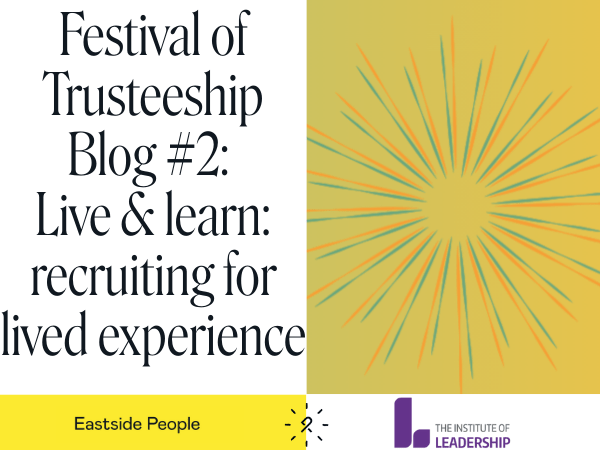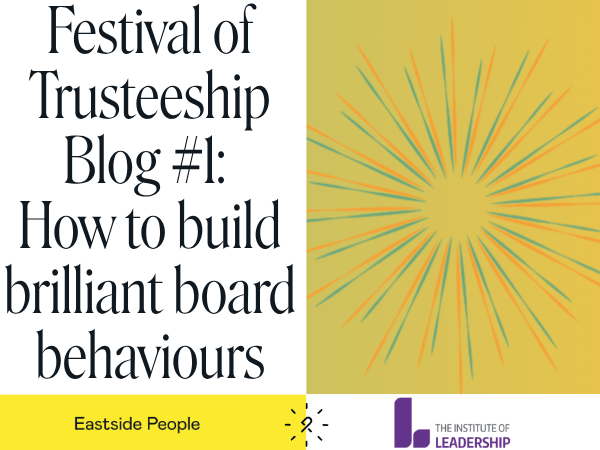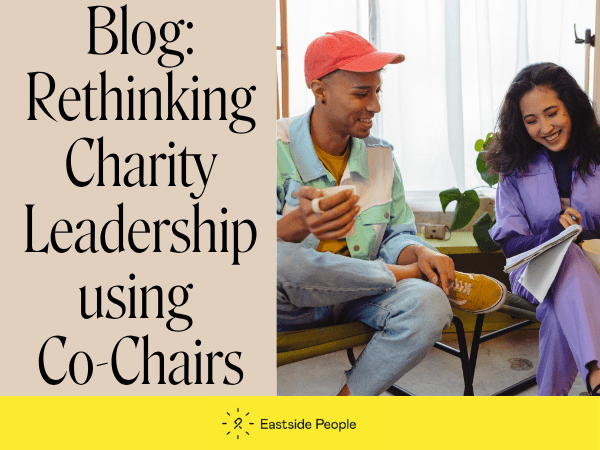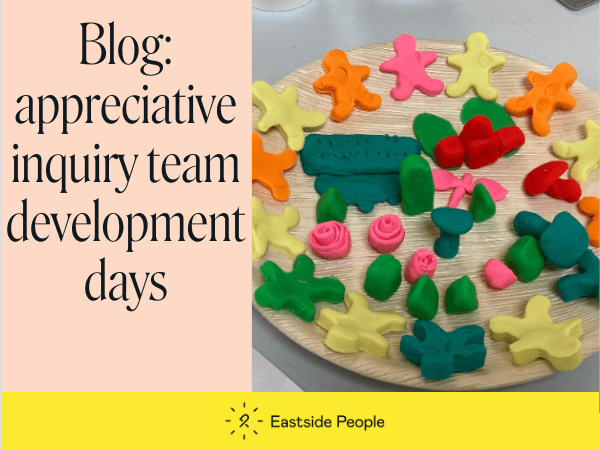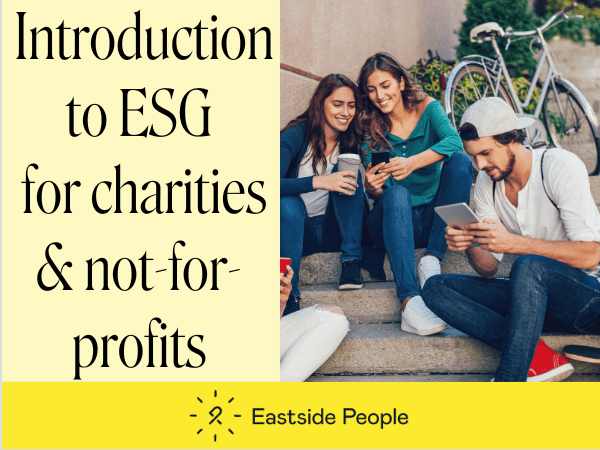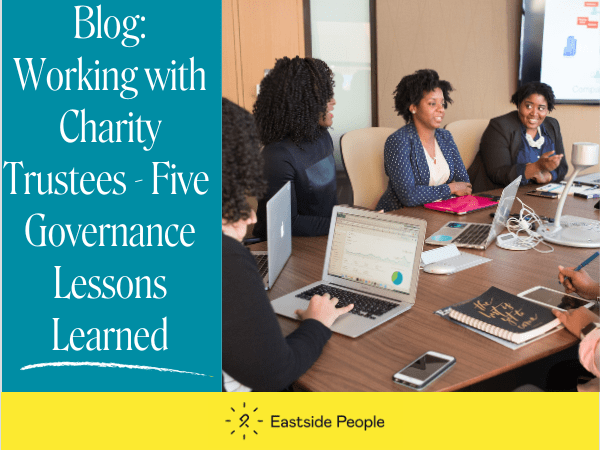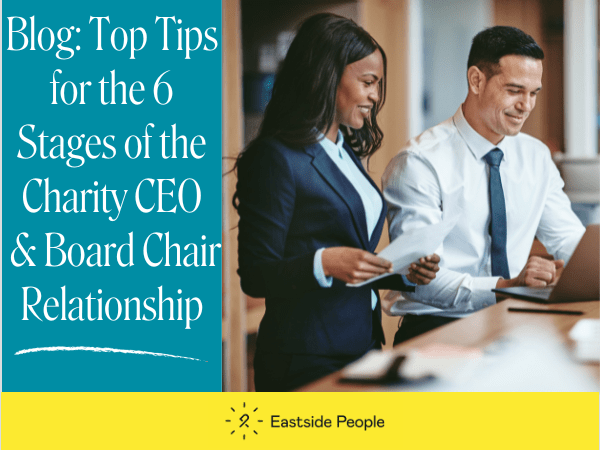This blog by Eastside People Consultant (and charity trustee) Fiona McAuslan looks at why people think being a charity trustee is not for them and gives tips on how to overcome the common misconceptions and barriers that might be discouraging people to become trustees.
One of the Festival of Trusteeship’s most popular sessions is What is a trustee and how do I become one? With good reason, there are loads of people who want to become a trustee but many who don’t know where to start. What’s more, many people self-select out of the process even before they start because they think that trusteeship is not for people like them.
There are around 950,000 trustees helping to run charities across England and Wales but with an estimated 90,000 vacancies, there’s never been a better time to realise that there’s a spot on the board waiting for you too.
Read our becoming a charity trustee myth busters and top tips for overcoming them in the list below and start believing it could be you.
1. “I’m not experienced enough.”
No one starts with trustee experience; that’s what trusteeship gives you. A decent board will provide first time trustees with onboarding, training and all the information you need. Then you’ll learn how boards work, how decisions are made, and how to think strategically by being part of it.
2. “I don’t know enough about governance or law.”
Many trustees are in the same boat when they’re first appointed; that’s why there are ample online resources to help. The Charity Commission has excellent accessible free online guides while training providers including the Association of Chairs and Directory of Social Change offer online training covering essential board governance. Sign up to the Eastside People newsletter (if you’re not already) for tips, guidance, opinion and advice on board governance throughout the year too.
3. “I wouldn’t fit in – boards are for older, more qualified people.”
Boards need fresh voices and a diversity of lived and learned experience. This is not a nice to have – it’s actually encoded in the Charity Commission’s Guidance: Finding and appointing new trustees. Your background, ideas and perspective are exactly what helps organisations challenge assumptions, find innovative solutions, serve beneficiaries and deliver impact.
4. “I’ve only ever volunteered; I haven’t led anything.”
Volunteering experience translates perfectly. If you’ve ever spotted ways to improve how things run, trusteeship lets you make those changes happen at a strategic level.
5. “I’m not confident speaking in meetings.”
You don’t have to be loud to be effective. Careful, evidence-based thinking is just as powerful as quick-witted oracy. Thoughtful trustees help boards make better, fairer decisions.
5. “I don’t speak the language of boardrooms.”
Boards need plain-speaking people who ask real questions. Being able to name all the different parts of a spreadsheet, or have all the technical terms isn’t as valuable as being authentic and committed. Your clarity and fresh perspective will make discussions stronger.
6. “I’m not sure my background is relevant.”
Whatever your skill set – librarian, engineer, nursery worker, banker, parent, conservationist, shop assistant- there’s a charity that needs exactly that. Think about positioning your skills, knowledge and experience as transferable.
7. “I can’t always attend everything and I might need flexibility.”
Boards increasingly understand that not everyone has the same situation and particularly that some people need reasonable adjustments. These are good questions to raise in conversation or in an interview and make sure they have appropriate policies in place to enable you to contribute in ways that work for you.
Can you see yourself fitting into a board? Join us at What’s a trustee and how do I become one on Monday 3 November 2025 to discover your next steps (part of the Aspiring Trustee Series which is free for new or aspiring trustees).
This session and all others for aspiring trustees are free. Book your spot and browse the entire Festival of Trusteeship sessions.




